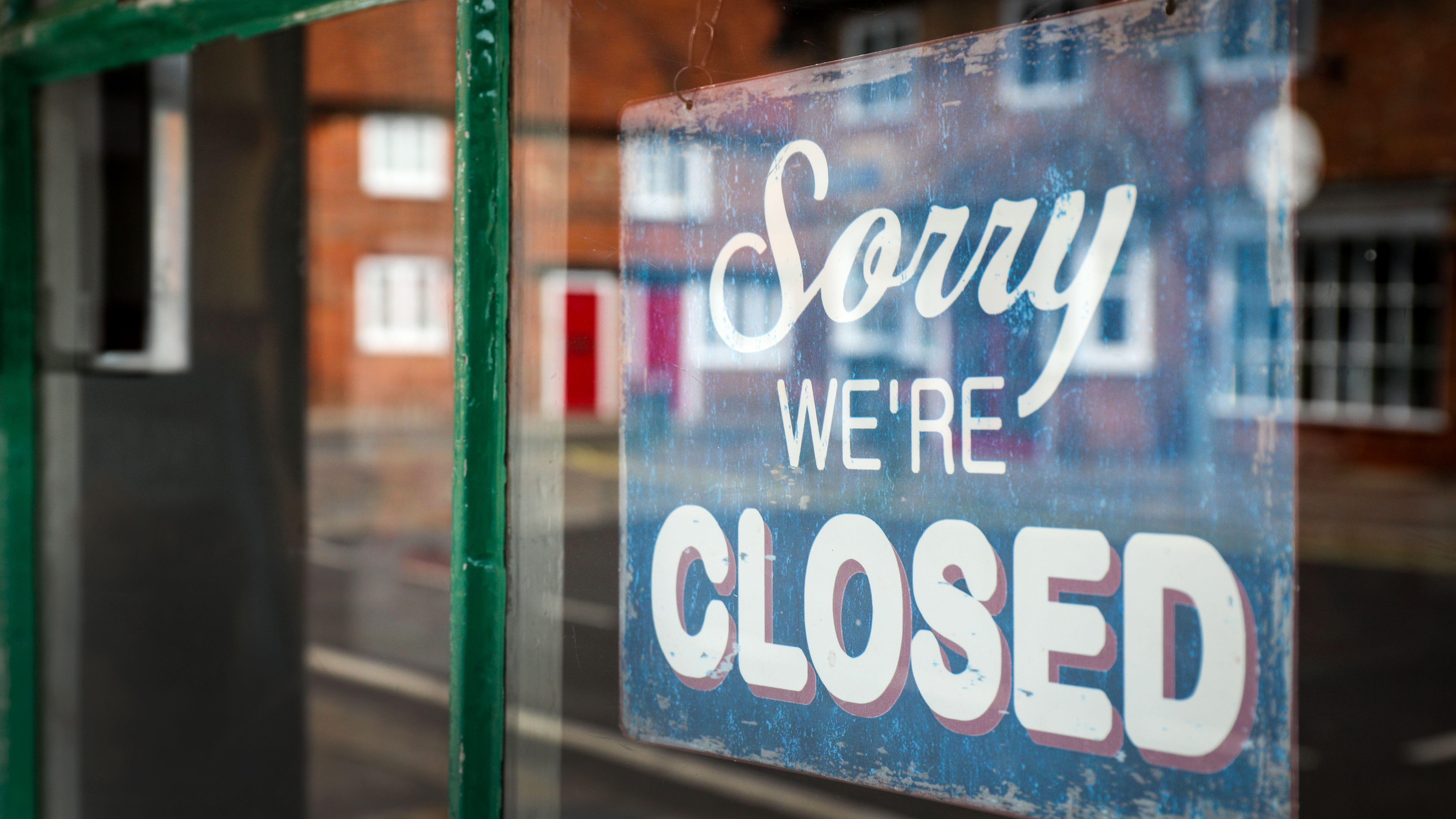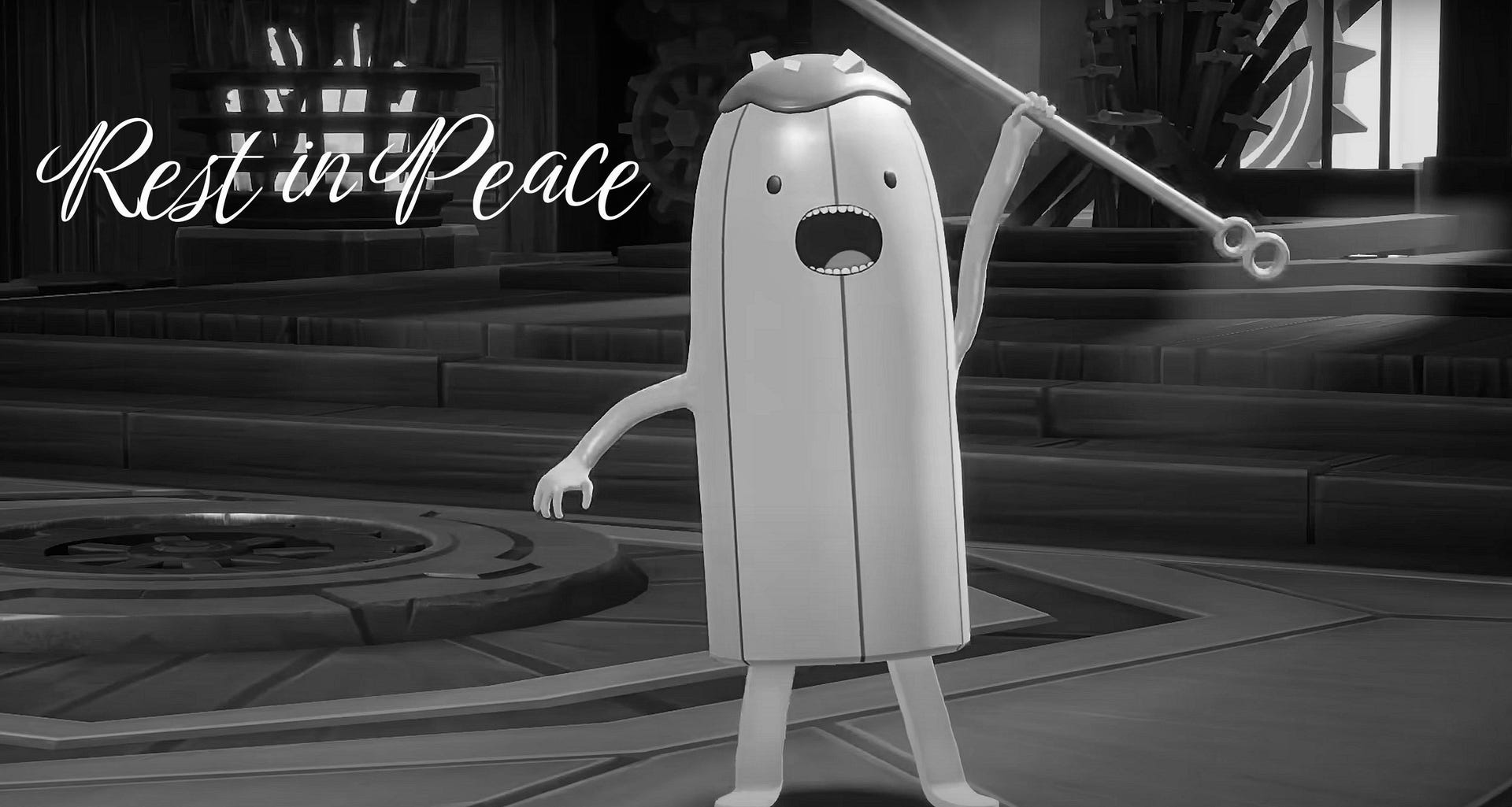Court Rejects Musi’s Bid to Force Apple to Reinstate its Music App
Musi's initial attempt to force Apple to reinstate its music app to the App Store has failed. A California federal court denied a request for a preliminary injunction, ruling that Apple did not act unreasonably or in bad faith when it removed the app following complaints from music industry players and YouTube. The court found that Musi’s proposed injunction would not serve the public interest. From: TF, for the latest news on copyright battles, piracy and more.

 Last September, Apple removed popular music streaming app Musi from its App Store, affecting millions of users.
Last September, Apple removed popular music streaming app Musi from its App Store, affecting millions of users.
Apple’s action didn’t come as a complete surprise. Music industry groups had been trying to take Musi down for months, branding it a ‘parasitic’ app that skirts the rules.
IFPI took the lead, calling on other music industry players and YouTube to complain to Apple as well. The mounting pressure eventually paid off.
Delisting from the App Store puts the future of Musi directly at risk. The company initially hoped to resolve the matter with Apple behind closed doors, but since the tech giant was unwilling to reverse its decision, Musi took the matter to court.
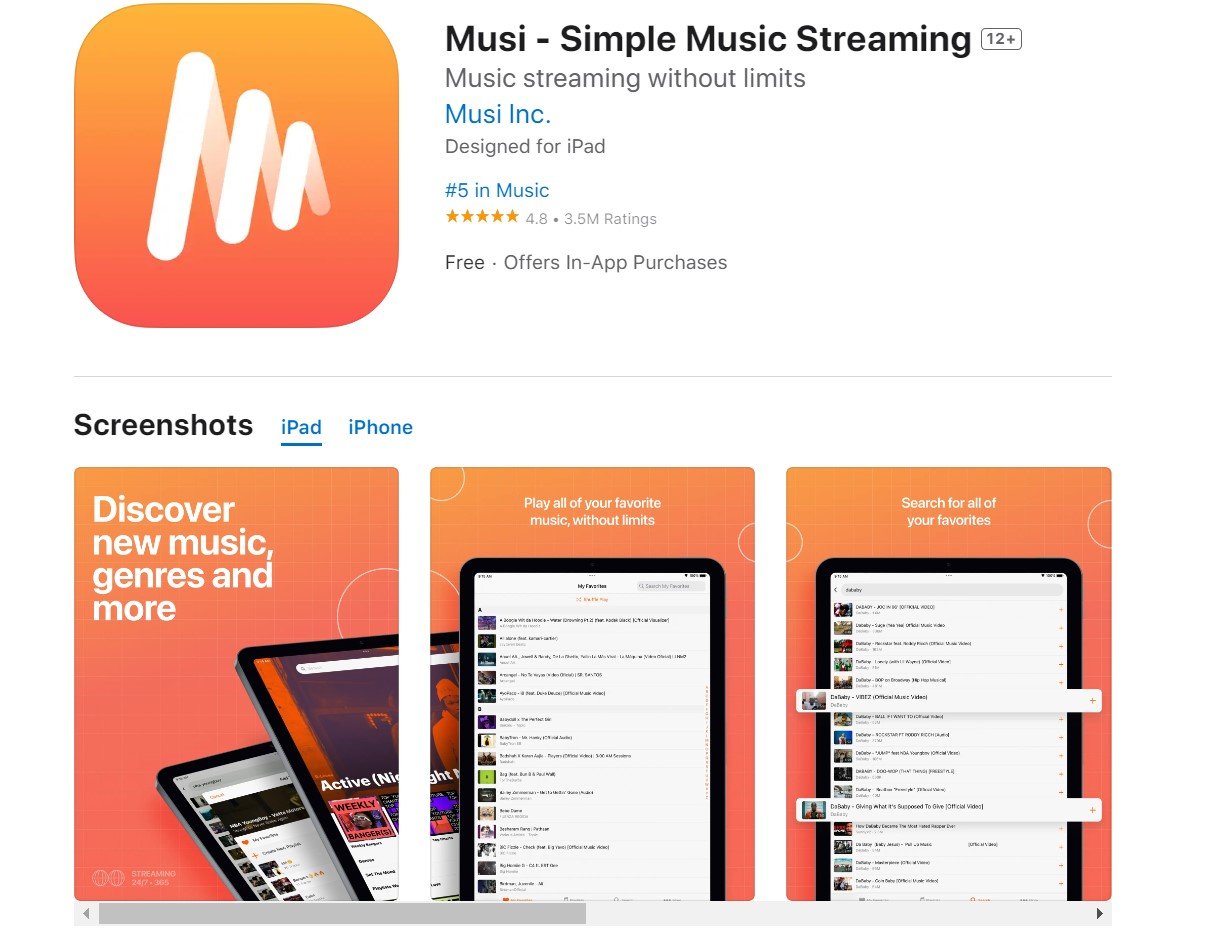
Music Sues Apple over App Removal
In a complaint filed at a California federal court last October, Musi alleged that the takedown was unjustified, accusing Apple of breach of contract, among other things.
Wasting no time, Musi requested a preliminary injunction to compel Apple to reinstate the music app. While existing users still have access to the software, it’s no longer available for new users to download, which directly impacts revenue. If this continues, Musi will eventually be put out of business.
Musi argued that Apple’s decision was based on a one-sided view, leading to a “unfair” and “tainted” removal process, influenced by Apple’s alleged “backroom conversations” with key music industry players.
Apple denied any wrongdoing and pointed out that it had received complaints about Musi for a long time. Regardless, the company argued that the terms of the Apple Developer Program License Agreement (DPLA) allow the company to delist apps “at any time, with or without cause.”
Court Denies Reinstatement Request
After reviewing the arguments from both sides, the U.S. District Court for the Northern District of California denied the request for a preliminary injunction. This means that the app won’t be reinstated while the case is pending.
Judge Eumi K. Lee ruled that the DPLA gave Apple broad discretion to remove applications from the App Store and that Musi had not raised serious questions that Apple acted unreasonably or in bad faith when it removed the Musi app.
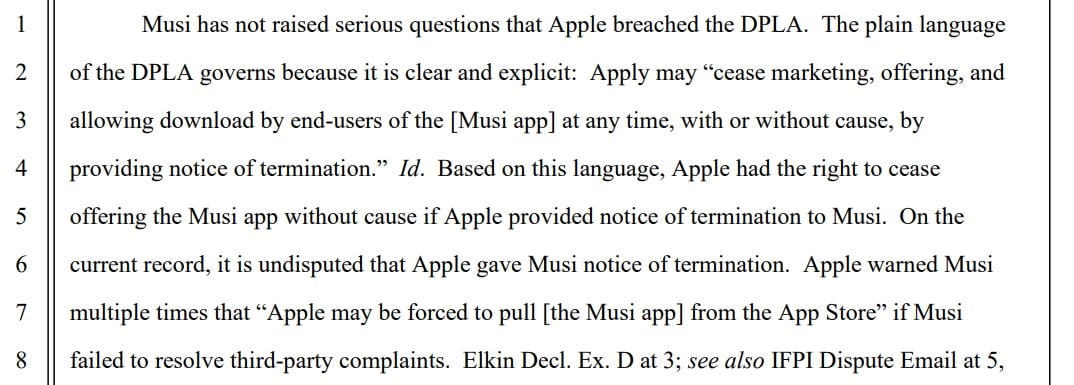
The court concluded that Musi’s proposed injunction would not serve the public interest. Musi did not present any compelling public interest arguments that outweigh the interests of copyright holders.
Not in the Public Interest
Notably, the court did not express an opinion on the validity of the complaints against Musi, including those from YouTube and the music companies. At this stage, however, the interests of rightsholders outweigh the potential harm suffered by Musi.
“Musi has not presented any compelling public interest to counterbalance the potential violation of third-party intellectual property right,” Judge Lee writes.
“Musi’s proposed injunction would require Apple to reinstate the Musi app; it would not confer any benefit on any developer other than Musi. Accordingly, the Court finds that a preliminary injunction is not in the public interest.”
All in all, this means that Musi remains unavailable in the App Store but the case itself is far from over. In the next round, Apple is expected to file a motion requesting the federal court to dismiss Musi’s amended complaint.
—
A copy of Judge Eumi K. Lee’s order, denying the preliminary injunction, is available here (pdf)
From: TF, for the latest news on copyright battles, piracy and more.










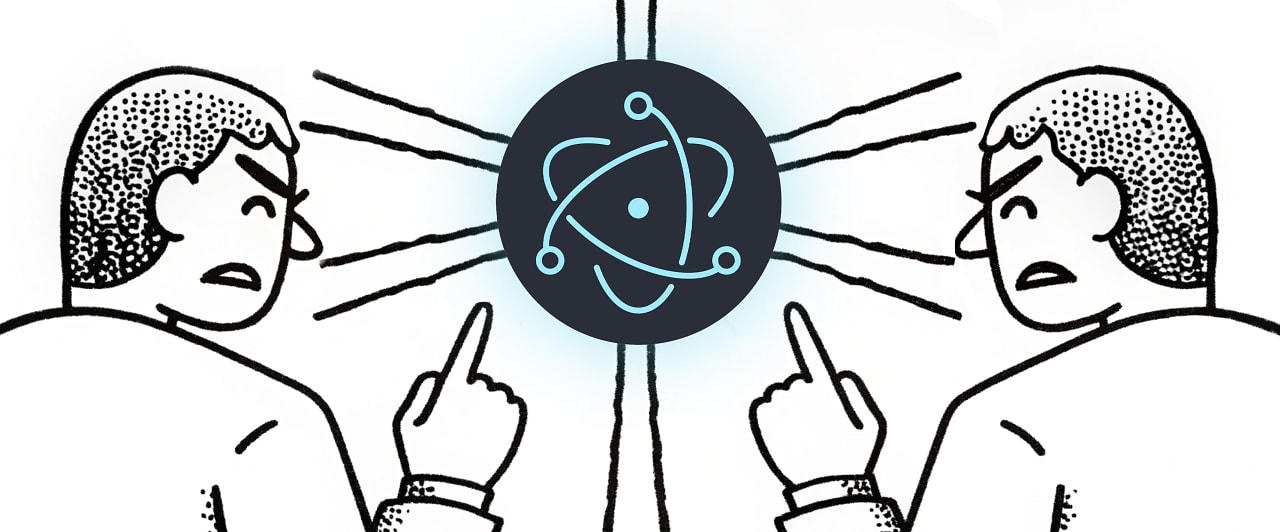


![From Gas Station to Google with Self-Taught Cloud Engineer Rishab Kumar [Podcast #158]](https://cdn.hashnode.com/res/hashnode/image/upload/v1738339892695/6b303b0a-c99c-4074-b4bd-104f98252c0c.png?#)







